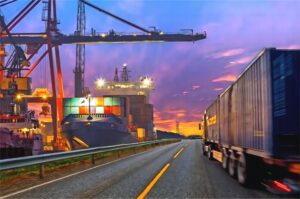- By TOP CHINA FREIGHT
- April 16, 2020
- Transport
In today’s interconnected global marketplace, efficient packaging and logistics services are essential for the smooth flow of goods across borders. As businesses expand internationally, the demand for comprehensive packaging solutions and effective logistics has surged. This article explores the pivotal role that packaging and logistics play in connecting businesses with consumers worldwide.

The Impact of Globalization on Logistics
Globalization has reshaped the way companies operate and trade internationally. As markets extend beyond national borders, the need for reliable and efficient logistics services has intensified. Effective packaging, a crucial component of the supply chain, ensures the safe and secure transit of goods over long distances.
Strategies for Success in the Global Marketplace
To excel in international trade, packaging and logistics providers must implement strategies that extend beyond basic transportation. Key strategies include:
- Comprehensive Supply Chain Solutions: Efficient warehousing, dependable transportation networks, and timely delivery schedules.
- End-to-End Services: Offering complete solutions that address the complex demands of global trade.
Companies that provide integrated solutions are better positioned to meet the diverse needs of international markets.
Leveraging Technology for Enhanced Efficiency
Technology is revolutionizing the packaging and logistics sector. Innovations such as:
- Real-Time Tracking: Allows for precise monitoring of shipments.
- IoT-Enabled Devices: Enhances operational visibility and control.
- Data Analytics: Improves accuracy and decision-making.
These technologies significantly boost accuracy, transparency, and overall efficiency in logistics operations.
Embracing Sustainable Packaging Practices
With increasing environmental awareness, sustainable packaging has become crucial. Consumers are more concerned about the ecological impact of packaging materials. In response, packaging and logistics providers are adopting:
- Eco-Friendly Materials: Reducing environmental impact.
- Sustainable Practices: Contributing to a greener global supply chain.
These practices not only meet consumer expectations but also support environmental responsibility.
Navigating Regulatory Challenges in Global Trade
Operating globally involves navigating complex regulatory environments. Challenges include:
- Customs Requirements: Adhering to varying regulations.
- Compliance with Trade Laws: Ensuring alignment with international standards.
Successful navigation of these challenges requires a thorough understanding of regional regulations and agility in adapting to global trade changes.
Conclusion
Packaging and Logistics: The Unsung Heroes of Global Trade highlights the indispensable role of these services in connecting producers with consumers worldwide. As businesses continue to expand globally, offering reliable, efficient, and sustainable packaging and logistics solutions becomes a key differentiator in the competitive international trade landscape.
